Top 5 Free and Open-Source Inventory and Warehouse Management Systems
Inventory Management Software is a computerized system to manage and keep track of the number of stored goods, serial numbers, barcodes, costs, location...etc
Inventory management solutions keep track of the goods while moving through the process or stored in the warehouses. This can help in decreasing costs and enhance customer support service.
In the following list, we take a look at the top free and open-source solutions which are suitable for small and medium-sized companies.
1- Snipe-IT
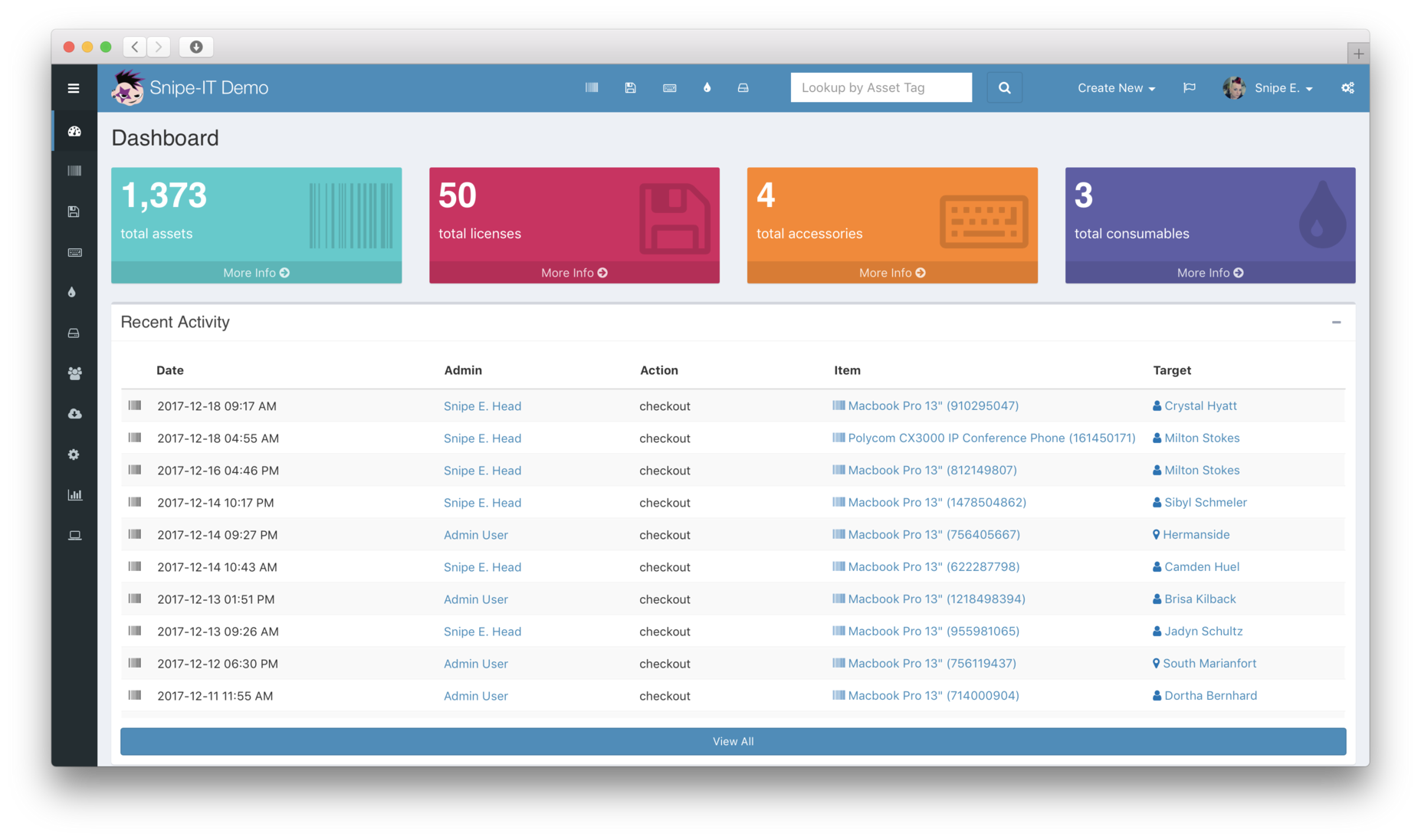
Snipe-IT is an open-source self-hosted web-based asset and warehouse management package. We recommend this package for businesses which have multiple locations and hundreds of users. It provides support via GitHub.
There is also a commercial edition which is cloud-hosted and has automatic backups and upgrades. It offers email and phone support.
Highlights
- Free (Libre) open-source software (FLOSS)
- Cross-platform: Windows, Linux and macOS
- Developer-friendly with REST API
- Mobile-friendly for asset updates on the go
- Frequent updates and bug-fixes
- Trusted by customers from all over the globe
- Unlimited Users
- Unlimited Assets
- Notifications (Email, Slack)
- Multi-lingual support
- Admin dashboard to track recent activities
- Powerful Asset Management
- Asset Auditing
- QR code and barcode generator
- License Management
- History Manager
- Digital Signature Support
- Import/Export Assets
- Asset Tracking
- Asset Search

2- OpenBoxes
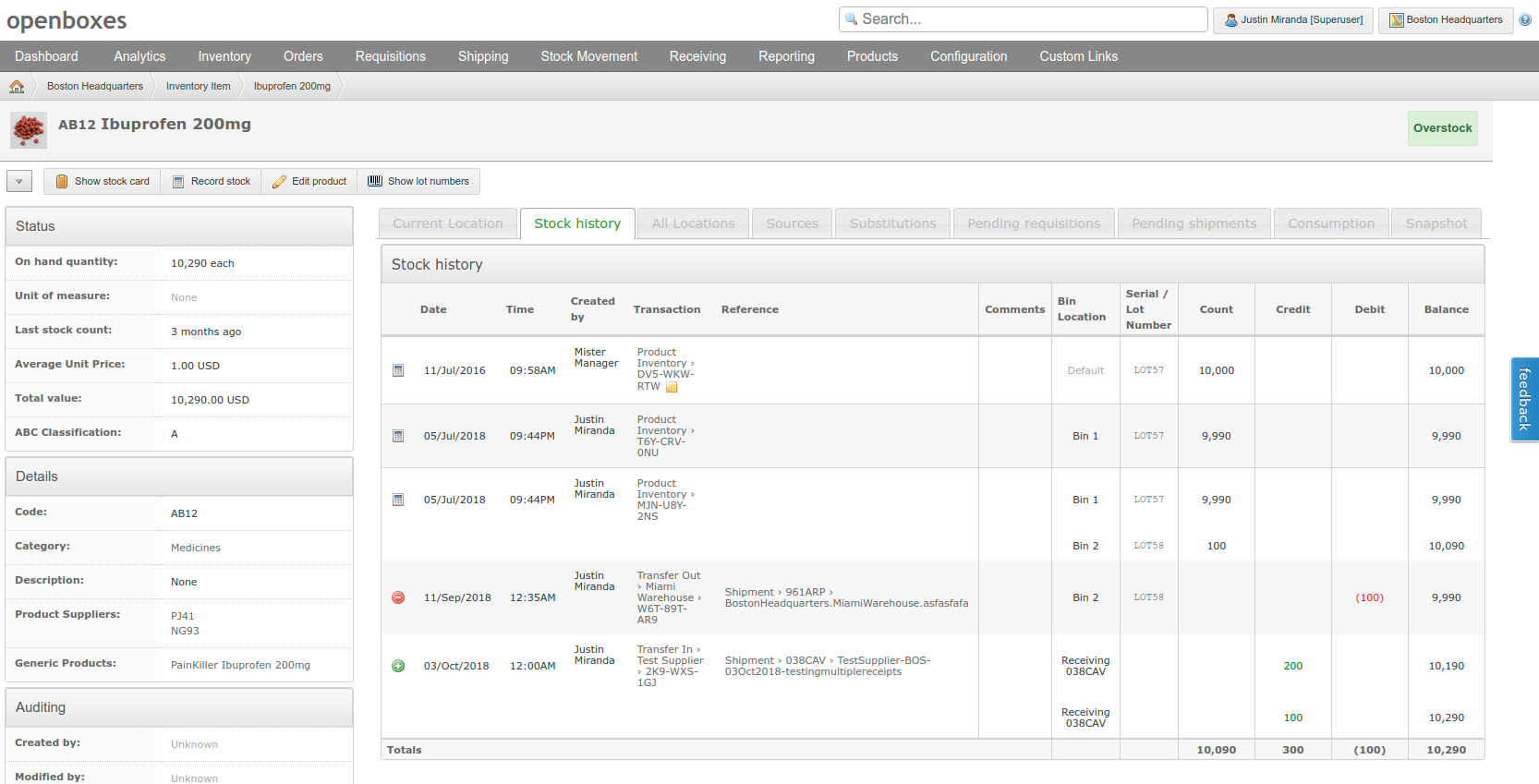
OpenBoxes is a free web-based inventory/asset management solution. It is an open-source software package which allows developers to extend its functionalities and business owners to use it freely. It is suitable for healthcare facilities.
It is also a cross-platform software package, built with Java which means it'll work smoothly on any Java-supported platform.
Highlights
- Cross-platform (Java-based): Windows, Linux and macOS
- Self-hosted
- Manages multiple warehouses in different locations
- Automated suggested pick based on FEFO (first-expiry-first-out)
- Remove quantity from inventory due to expiry, damage, or recall
- Dynamic stock calculation
- Products type configuration and support
- Custom fields and metadata-aware products
- Import and export options
- Informative dashboard
- Powerful location browsing (Geo-based, groups, internal and external locations)
- Reporting tools
- Multi-lingual
- Multiple users with advanced group permission support
- Email notification
- Assign permission levels by role (Superuser, Manager, Read-only)
- User access can be restricted by location
- Ability to authenticate using directory service (i.e. LDAP)
- Can be integrated with third-party software systems through REST API
- Can be integrated with barcode scanners and RFID receivers
3- ERPNext
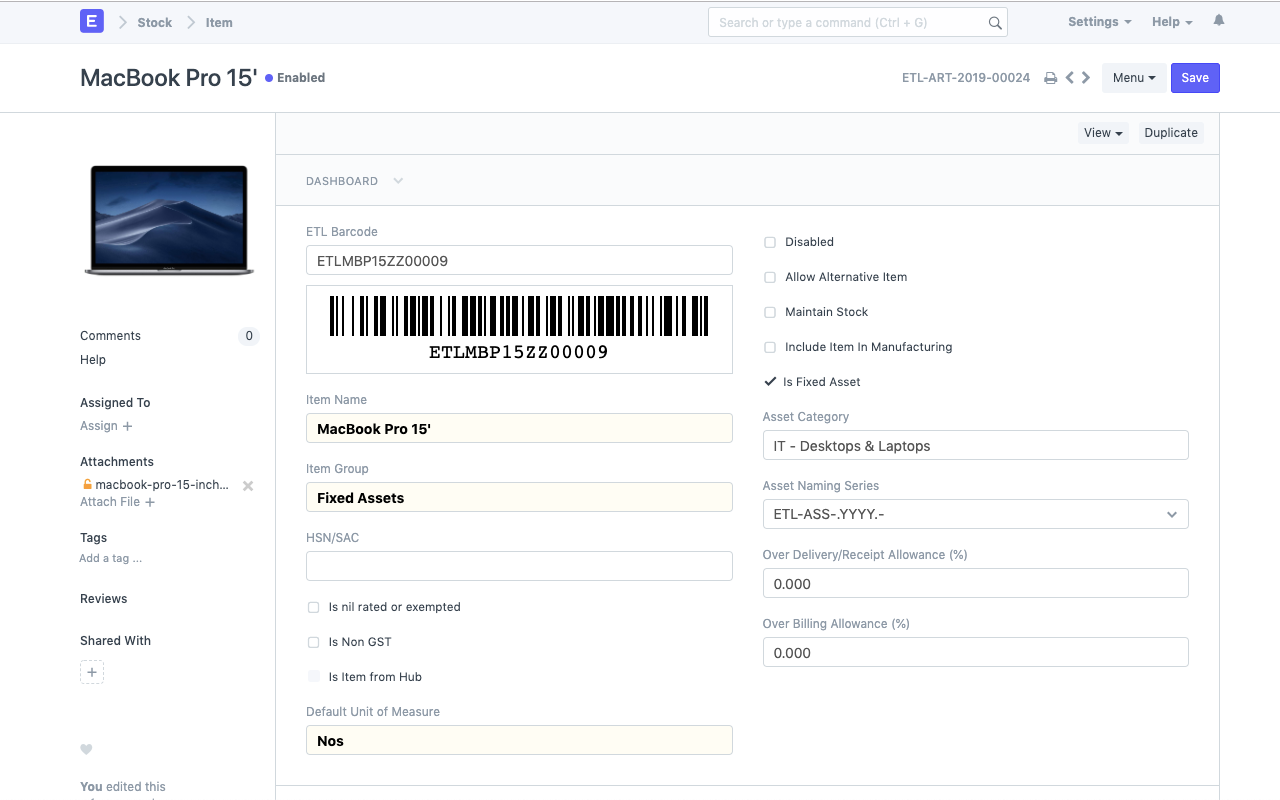
ERPNext is an open-source ERP solution that works for small, medium and enterprise-class companies. It has a built-in inventory management module along-side many modules required by the facility.
ERPNext is a supply chain centered ERP, It is built to manage all operations required. It has been used by many companies all around the world.
Highlights
- Free open-source complete ERP system
- Multi-lingual (more than 70 languages)
- It has a host of built-in integrations (slack, paypal, shopify, dropbox ...etc)
- Asset Lifecycle (status of an asset, custodian, location, warranty and insurance, depreciation and depreciation schedule, asset transfer, scraping, selling and movements)
- Inventory Management
- Automating Asset Depreciation
- Asset Value Adjustment
- Custom reports with Report Builder
- On the fly customizations
4- ERP5
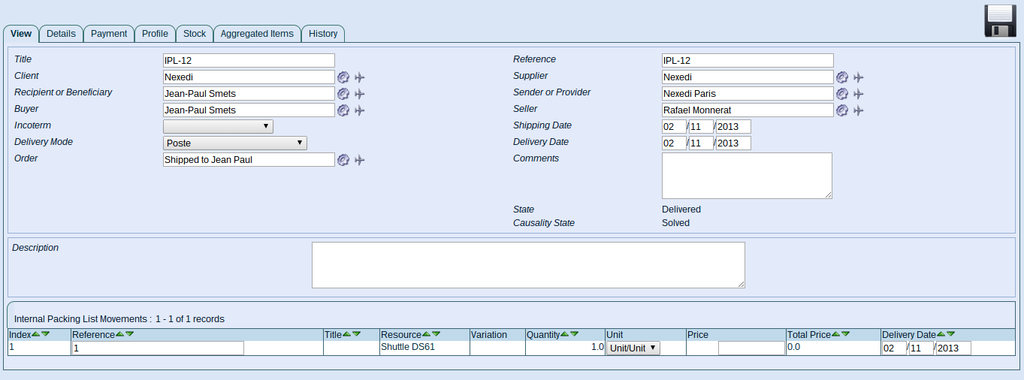
ERP5 is an open-source self-hosted ERP solution written in Python. It is preferred by NGOs, governments in many countries around the world, as well as small to medium sized companies.
ERP5 has integrated modules for inventory, accounting, supply chain management, eCommerce, eGovernment, banking, PoS (Point-of-Sales), CRM and HR.
Highlights
- Free open-source complete ERP system
- Inventory Management
- Barcode Generation
- Advanced Invoicing
- eGovernment module (finance, human resources, asset management, inventory, document management and knowledge management)
- eCommerce module which can be integrated with CRM, inventory management, content management, purchase, logistic, accounting and social networks
- Project Management module
5- Dolibarr
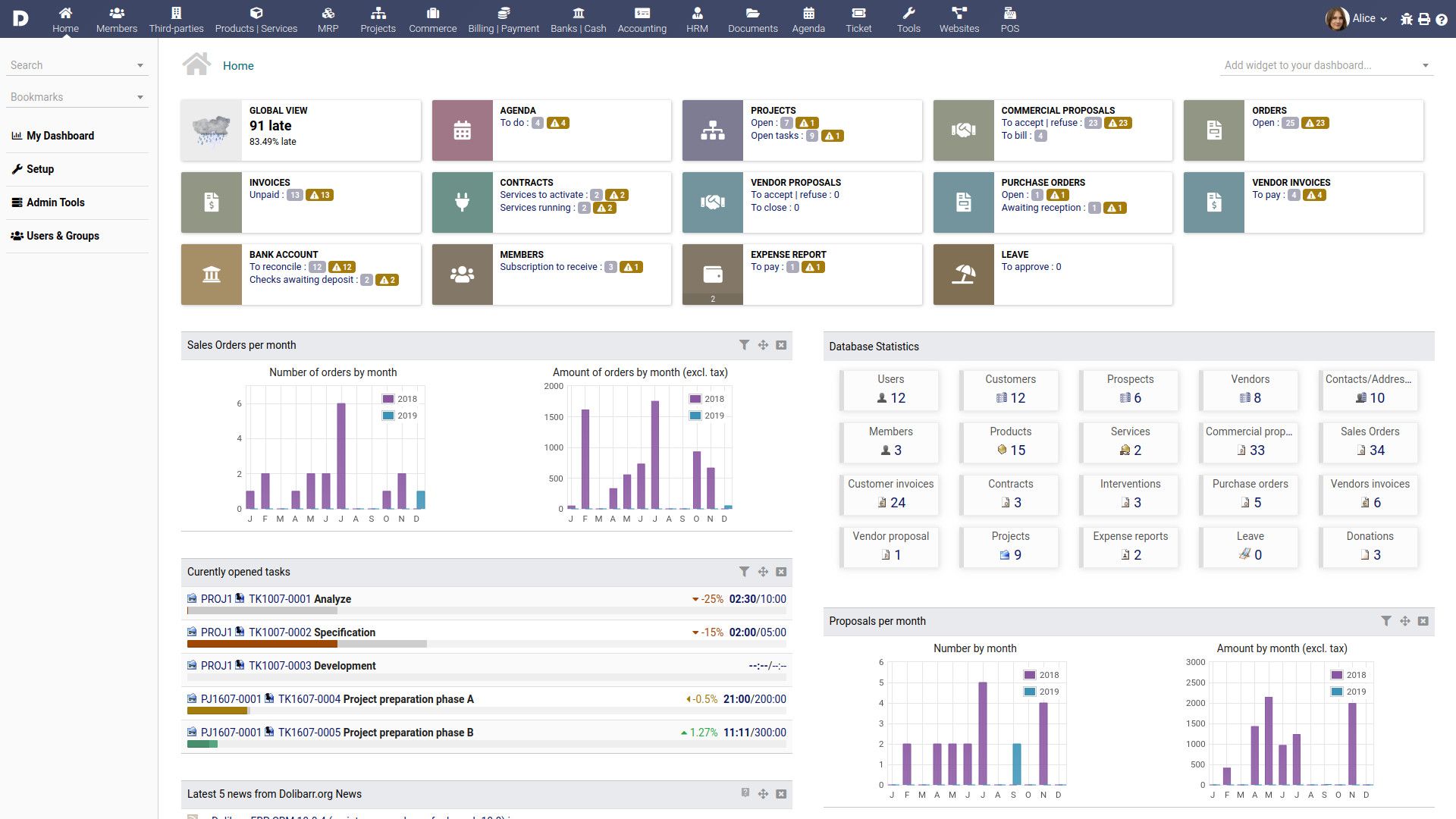
Dolibarr is a simple and user friendly yet powerful ERP solution with a rich ecosystem. It's popular in many countries in the European Union like Italy, France, Greece and Germany.
Dolibarr offers a powerful built-in inventory/warehouse stock management module, alongside the necessary tools to keep the managers updated about their stock.
Dolibarr is free and open-source, and it is supported by a powerful community of developers and users.
Highlights
- Free open-source ERP system
- Highly Custamizable (enable only the features you need)
- Upgrade at any time without losing data
- Customer and Supplier Orders management
- Commercial proposals management
- Mass stock change, inventory or transfer in one step
- Invoices and payment management
- Electronic Document Management (EDM)
- Bank accounts management
- Projects management
- Mass emailing
- Point of Sale (POS)
- Expense reports
- Data export/import
- Barcodes support
- LDAP connectivity
- Payment platforms integration (PayPal, Stripe, Paybox...etc)
- Multi-lingual support
- Multi-Users and groups with finely grained rights
- Multi-company by adding of an external module
Conclusion
Inventory Management is essential for any business type, whether small or large. We would recommend going for ERP-based inventory management solutions instead of standalone solutions if you have a full supply chain process.



